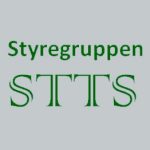STTS is an abbreviation for “The steering committee on the railway connection between Tønder, Tinglev and Sønderborg”.
![]() Læs om STTS på dansk
Læs om STTS på dansk ![]() Lesen Sie mehr über STTS auf Deutsch
Lesen Sie mehr über STTS auf Deutsch
STTS was formed in June 2011 by a group of people and companies based in Tønder municipality. They saw a need for the railway between Tønder and Tinglev to be reopened to both freight and passenger traffic. This group has subsequently been expanded to also work outside Tønder Municipality.
STTS is a working and project group consisting of representatives from companies within e.g. railway operations, business tourism and business development, as well as private individuals with experience backgrounds in the same areas. In connection with STTS, a project group has previously prepared a PPP project for passenger traffic between Tønder and Sønderborg.
What is the goal of STTS working for?
For STTS, the first goal is to ensure the preservation of the railway line between Tønder and Tinglev as part of the Danish railway infrastructure. Next, to work for the development of a crossing railway that accommodates passenger traffic between the cities of Tønder and Sønderborg.
In parallel with this, STTS is also working to create interest among freight operators to take advantage of the opportunities and advantages of sending goods from the West Jutland area from Thyborøn in the north and Esbjerg via the Tinglev line towards Padborg and further towards Germany.
Likewise, STTS focuses on a serious and increasingly urgent challenge, the environmental impact of road freight transport. Therefore, STTS finds it important to make visible the environmental benefits of transporting goods by rail.
What are the possibilities for future operation on the Tinglev line?
STTS believes that a reopening and futureproofing of the railway between Tønder and Tinglev can be realized if there is a focus on the possibilities for both freight and passenger traffic – one does not exclude the other.
A crucial factor in this regard is to see the importance of the Tinglev line in a larger geographical and development context, that the Tinglev line has significance and growth potential that extends far beyond the border region.
What is it that the Tinglev track will be able to contribute?
With the reopening of the Tønder-Tinglev line, a new and strong cohesion can be created between the cities Sønderborg and Tønder, which will add new development perspectives across the border.
At the same time, a strengthened connection between Tønder and Sønderborg will have an important and spillover effect on all the station towns on the entire line and will therefore contribute to the development of the growth potentials in the region.
With a rail link between Sønderborg and Tønder, there will be a significant strengthening of the mobility between the two cities and their respective study and educational environments.
In order to ensure a sustainable basis for both the Tønder-Tinglev line and the connection between the centre cities Sønderborg and Tønder, STTS works to contribute to the establishment of new jobs and companies associated with the railway.
Therefore, STTS also supports initiatives in the field of business tourism, which can contribute to an increased interest in the borderlands.
How does STTS work?
STTS is built around a steering committee that coordinates the work that takes place in the project groups that are continuously created in relation to working with specific, delimited tasks, as well as acting as a link to various stakeholders and collaborators.
Each group may consist of one or more companies or of a group of people working on a specific project. Each group has a representative on the steering committee.
In addition to STTS establishing task-specific projects and working groups, work is also being done to establish a number of networks that aim to ensure as broad and nuanced a knowledge and experience base as possible.
STTS as a voice and mediator
An important task for STTS is to act as a voice and communicator for the represented companies to politicians and authorities, both locally and nationally.

